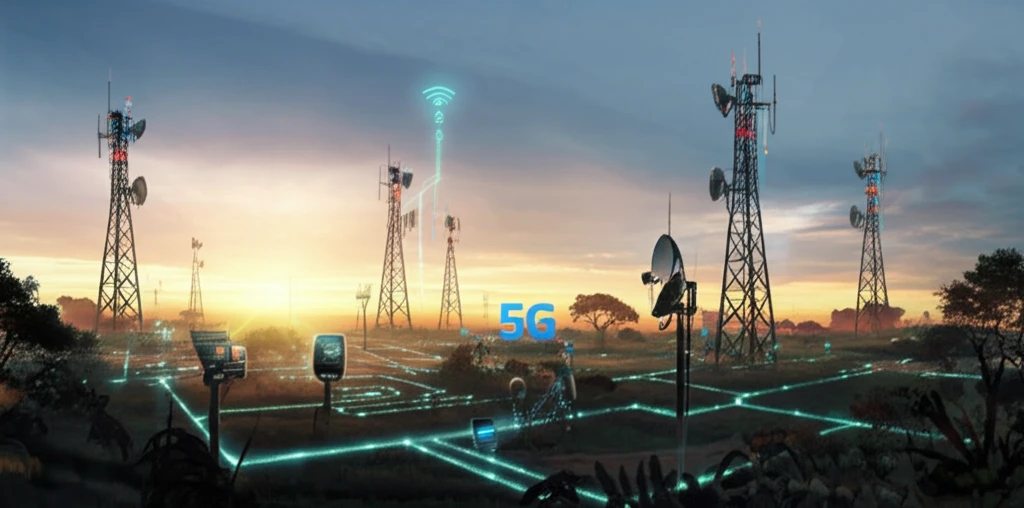
Smart Water Revolution: How 5G and NB-IoT Are Changing Africa
"Discover how the fusion of 5G and Narrowband IoT (NB-IoT) technologies is transforming smart water management across Africa, enhancing efficiency and sustainability."
The Internet of Things (IoT) is revolutionizing industries worldwide, and smart water management is no exception. In Africa, where water scarcity and efficient distribution are critical challenges, the integration of 5G and Narrowband IoT (NB-IoT) technologies is paving the way for transformative solutions. These advancements promise to enhance the monitoring, conservation, and overall management of water resources.
NB-IoT, a new radio interface technology designed for wireless IoT, is particularly suited for scenarios requiring low data rates, deep coverage, low power consumption, and massive connectivity. This makes it an ideal choice for deploying smart water management systems across vast and diverse landscapes.
The First Africa and Morocco NB-IoT Experimental Results highlight how these technologies are not just theoretical possibilities but practical, implementable solutions ready to address pressing water management issues. These innovative approaches are poised to accommodate new 5G and IoT performance standards, setting a precedent for future developments.
Benefits and Application Scenarios of IoT in Water Management

NB-IoT offers numerous benefits that make it well-suited for smart water management. Its ability to maximize spectrum utilization means it can support standalone, 5G guardband, and 5G in-band deployments, fully utilizing operator spectrum resources and increasing efficiency. This is particularly important in regions where spectrum resources are limited.
- Remote monitoring of water levels in reservoirs and tanks
- Smart meters that provide real-time data on water consumption
- Leak detection systems that can quickly identify and address water loss
- Automated irrigation systems that optimize water usage based on real-time weather data
Conclusion: A Sustainable Future Through Smart Technology
The integration of 5G and NB-IoT technologies in smart water management represents a significant step forward in addressing water scarcity and improving resource management in Africa. The experimental results and deployment scenarios from Morocco offer a promising glimpse into the potential of these technologies to revolutionize how water resources are monitored, conserved, and distributed, paving the way for a more sustainable future.
